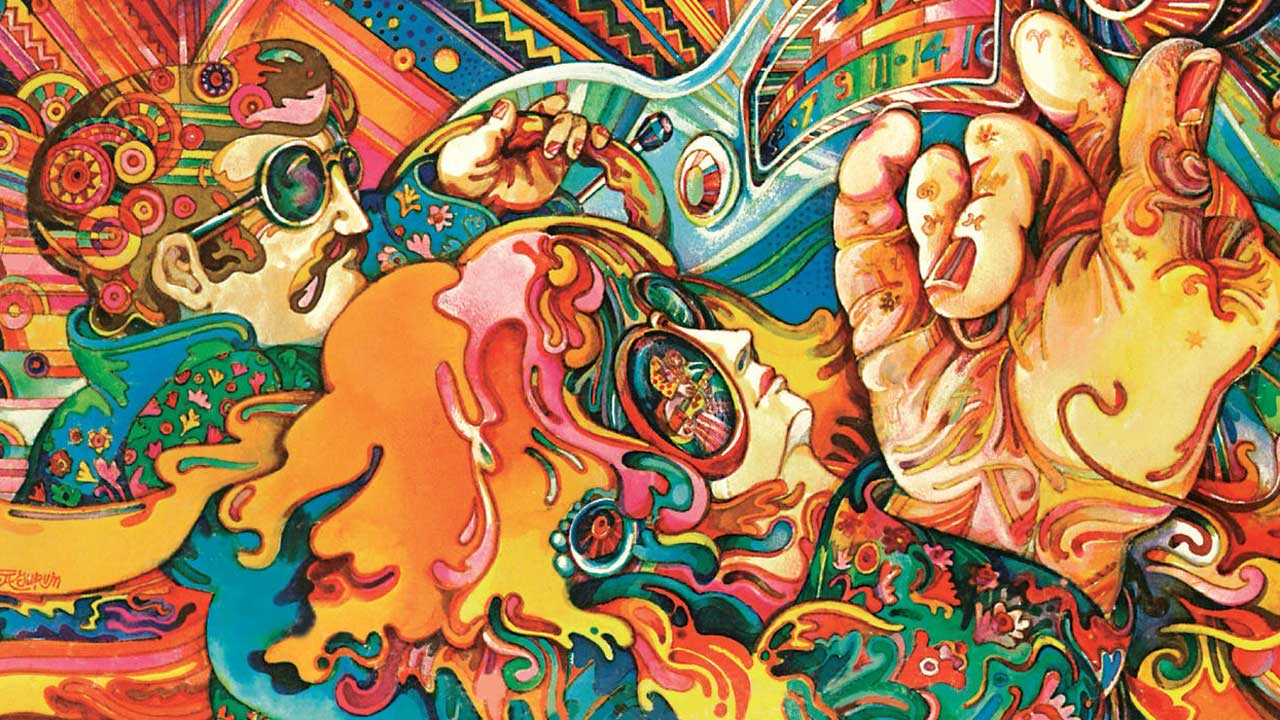Your essential guide to every Nirvana album
An in-depth assessment of Nirvana's catalogue, from Bleach to Unplugged in New York
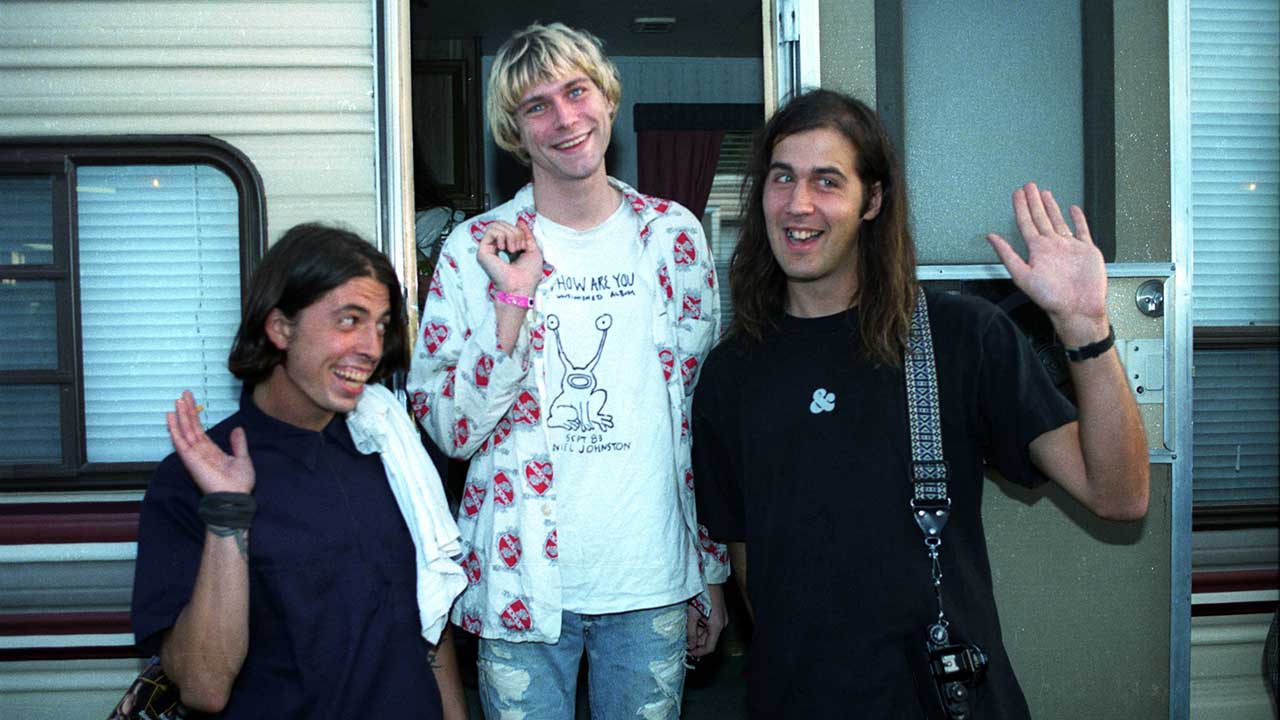
Select the newsletters you’d like to receive. Then, add your email to sign up.
You are now subscribed
Your newsletter sign-up was successful
Want to add more newsletters?

Every Friday
Louder
Louder’s weekly newsletter is jam-packed with the team’s personal highlights from the last seven days, including features, breaking news, reviews and tons of juicy exclusives from the world of alternative music.

Every Friday
Classic Rock
The Classic Rock newsletter is an essential read for the discerning rock fan. Every week we bring you the news, reviews and the very best features and interviews from our extensive archive. Written by rock fans for rock fans.

Every Friday
Metal Hammer
For the last four decades Metal Hammer has been the world’s greatest metal magazine. Created by metalheads for metalheads, ‘Hammer takes you behind the scenes, closer to the action, and nearer to the bands that you love the most.

Every Friday
Prog
The Prog newsletter brings you the very best of Prog Magazine and our website, every Friday. We'll deliver you the very latest news from the Prog universe, informative features and archive material from Prog’s impressive vault.
Every now and then you’ll hear someone claim that, from day one, they knew that Nirvana were going to be huge, that Kurt Cobain's band had the potential to change the world. If not liars, these people are idiots.
Indebted, like most of their Pacific Northwest contemporaries, to Black Sabbath and Black Flag, in their early years Nirvana were just another bunch of adolescent no-marks with shitty equipment, snotty attitudes and a burning desire to escape the suffocating boredom of small town existence.
But Nevermind, their debut album for major label DGC, changed everything. At a time when mainstream rock was all cocksure swagger and aggressive braggadocio, Cobain’s songs sounded humble, human and relatable, and they instantly struck a chord with fans, critics and legendary musicians alike.
"His music is powerful, very intense," Bruce Springsteen noted. "That sort of power is rare. Not many guys like him come along." Sadly, Cobain would not be around for long, his death by suicide coming less than three years after the release of Nevermind.
Here's our guide to Nirvana's three studio albums, their odd-and-sods collection Incesticide, and their final major artistic statement, MTV Unplugged in New York.

Bleach (Sub Pop, 1989)
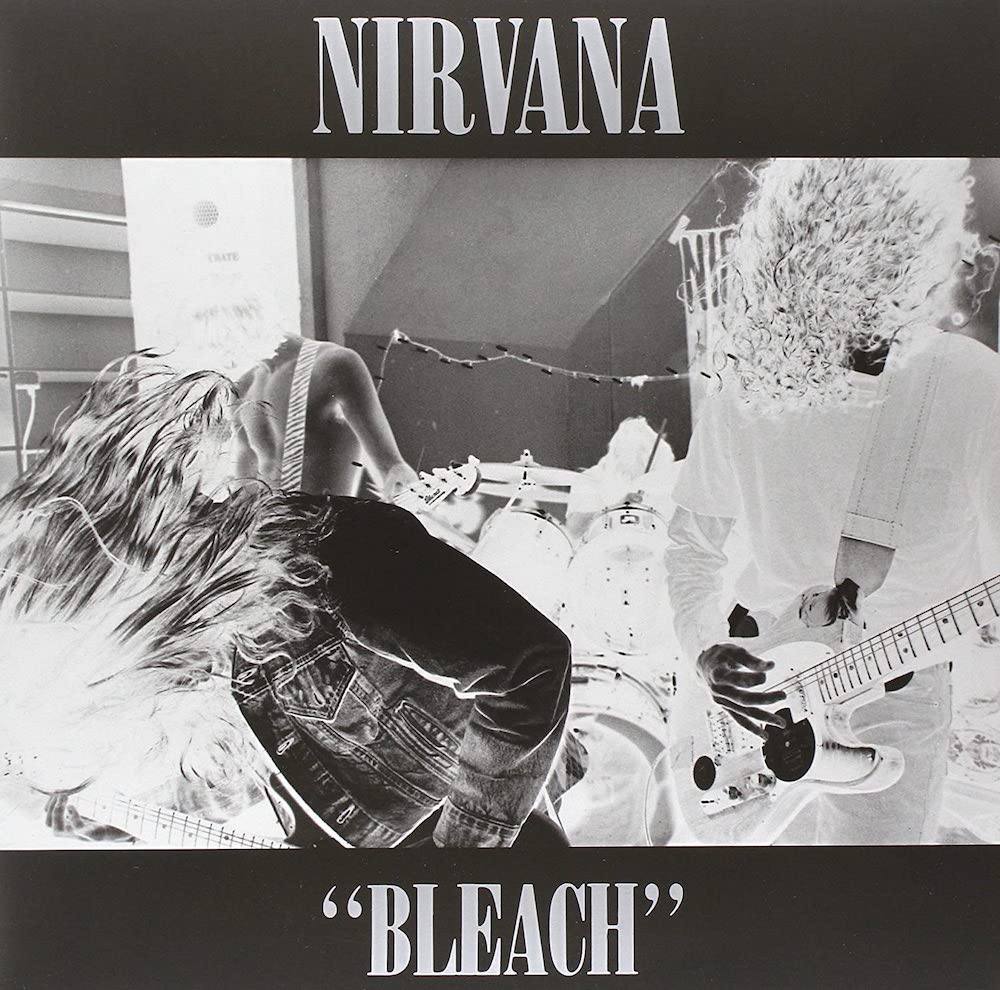
As the 1980s drew to a close, Nirvana weren't even the best band in their adopted hometown, much less the world. With tongue firmly in cheek, Sub Pop co-founder and hype man Jonathan Poneman liked to tell visitors to Seattle that Kurt Cobain's band would be “bigger than The Beatles”, a joke carried on in the press release accompanying Bleach (‘They’re young, they own their own van and they’re going to make us rich!’) but everyone paying the slightest bit of attention to the Pacific NorthWest music scene had pegged Mudhoney, and then Tad, as the groups most likely to put Jet City on the national map.
Bleach, is, in the main, mono-tonal sludge rock, hugely indebted to Melvins, who hailed from the same no-horse town, Aberdeen, Washington, that Cobain and Krist Novoselic were ashamed to call home. But three songs stand out: the frantic, self-loathing Negative Creep, an infectious cover of Dutch pysch-rock band Shocking Blue's Love Buzz, and the Beatles-esque About A Girl, a sweet, tender song Cobain wrote for his then-girlfriend Tracy Marander. “That song showed someone capable of writing a brilliant pop song,” Nevermind producer Butch Vig once told this writer. “Looking back now, that was sort of the shape of what was to come.”
Elsewhere the most striking component of Bleach is the biting lyricism, with the fabulously sarcastic "Fill me in on your new vision" (Mr Moustache) peak Cobain. This would be the only album Nirvana recorded for Sub Pop, and the clues as to why that is are written here in black and white: Big Cheese was Cobain's snarky dig at Jonathan Poneman's meddling in the band's affairs while School was written about Nirvana's frontman feeling judged within the Seattle music community. "We wrote it about Sub Pop," he confessed. "If we could have thrown in Soundgarden's name, we would have."
Nevermind (DGC, 1991)
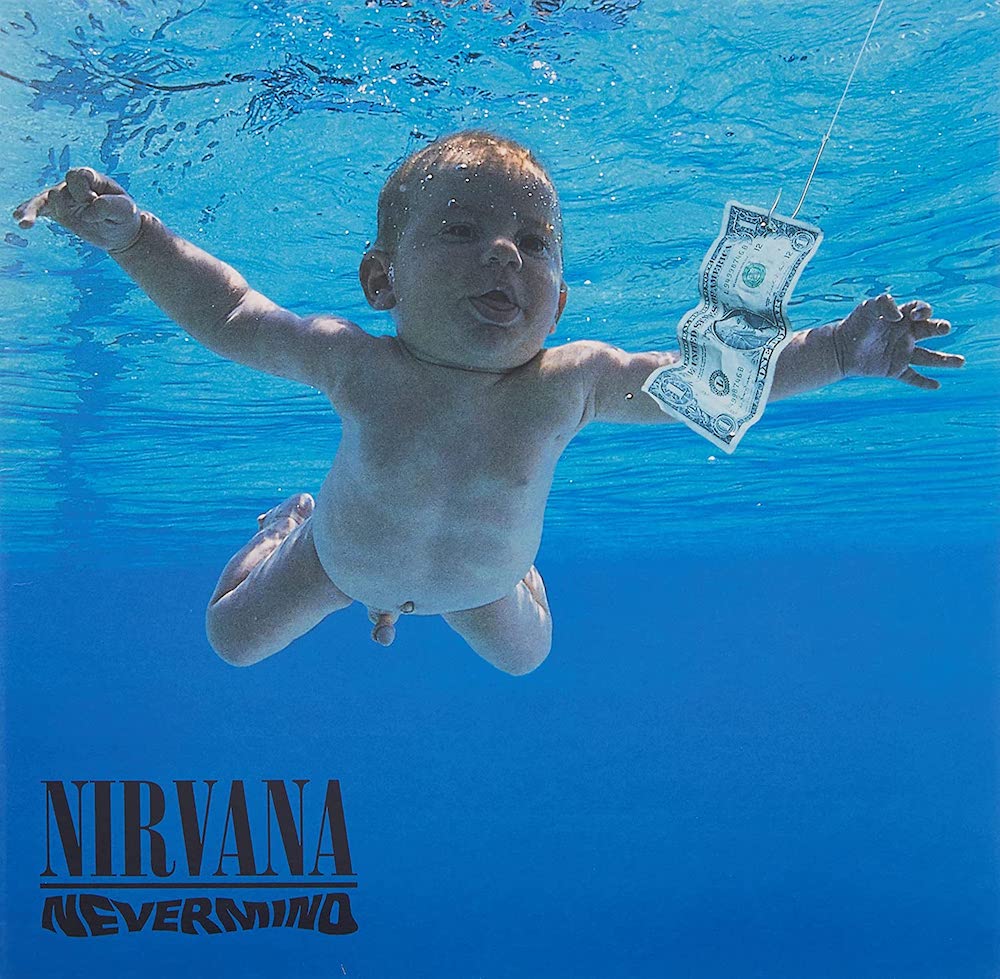
Courtney Love once likened her late husband's ambitious streak to that of Madonna in the '80s, and whatever he may subsequently have told the world's media, and perhaps himself, notes scribbled in his journals betrayed the fact that Kurt Cobain always had his heart set on making a big mainstream rock record.
Long before the ink had dried on his band's contract with Geffen subsidiary DGC, Cobain had begun drawing up a list of possible producers for 'Sheep', as he then imagined the follow-up to Bleach would be titled, and indie rock producers such as Steve Albini and Jon Loder weren't referenced: instead, Cobain had designs upon The Black Crowes producer George Drakoulis, or Steve Thompson and Michael Barbiero, who’d worked on Metallica’s …And Justice For All. In the end, at the 11th hour, Smashing Pumpkins/Killdozer producer Butch Vig was given the nod, having recorded album demos for the band in Wisconsin in April 1990, while drummer Chad Channing was still in the group. His replacement, Dave Grohl, Cobain promised Vig, was "the best fucking drummer in the world."
The album which Nirvana recorded from May 2 to May 28 Sound City studios changed not only their fortunes, but the face of popular music. Introduced in breathtaking style by Smells Like Teen Spirit - "With the lights out, it's less dangerous / Here we are now, entertain us..." - it impacted like a meteor shower, instantly making much of the contemporary hard rock/metal scene seem tired and passé.
"Nevermind is a record for people who'd like to like Metallica but can't stomach their lack of melody," wrote future Radio 1/6Music DJ Steve Lamacq in his 9/10 NME review, a curious comment given that 'The Black Album', released just six weeks earlier, was hardly devoid of commercial appeal, but one which correctly implied that Nirvana now had the potential to transcend their former cult/underground status. And how.
The latest news, features and interviews direct to your inbox, from the global home of alternative music.
Hearing Smells Like Teen Spirit on WGTB college radio in Washington DC one evening in September 1991, this writer, for the first and only time, called the station to ask the name of the song they were playing: my cassette copy of Nevermind was purchased in Georgetown's Smash! Records the following morning. Countless others, exposed to the explosive single on radio or via its thrilling video on MTV, acted in a similar fashion, and by the end of the year, Nevermind was selling 300,000 copies per week in the US alone. On January 11, 1992, almost two months before its second single, Come As You Are, was due for release, Nevermind hit the peak of the Billboard 200 album chart, displacing Michael Jackson’s Dangerous album from the summit, turning the trio into the world's most unlikely pop stars.
Millions discovering the band for the first time on Nevermind heard thrillingly kinetic punk rock rage (Breed, Territorial Pissings), raw, empathetic ballads (Something In The Way, the harrowing, heart-breaking Polly), and instantly addictive alt. rock anthems (future singles Lithium and In Bloom, the irresistible Drain You), with zero fat or filler anywhere during its 42 minute run length (49 minutes if one includes hidden track Endless, Nameless). “The kid has heart,” an impressed Bob Dylan said of Cobain after hearing Polly, and from here on in, nothing would ever be the same again for Nirvana's frontman or his band.
Incesticide (DGC, 1992)
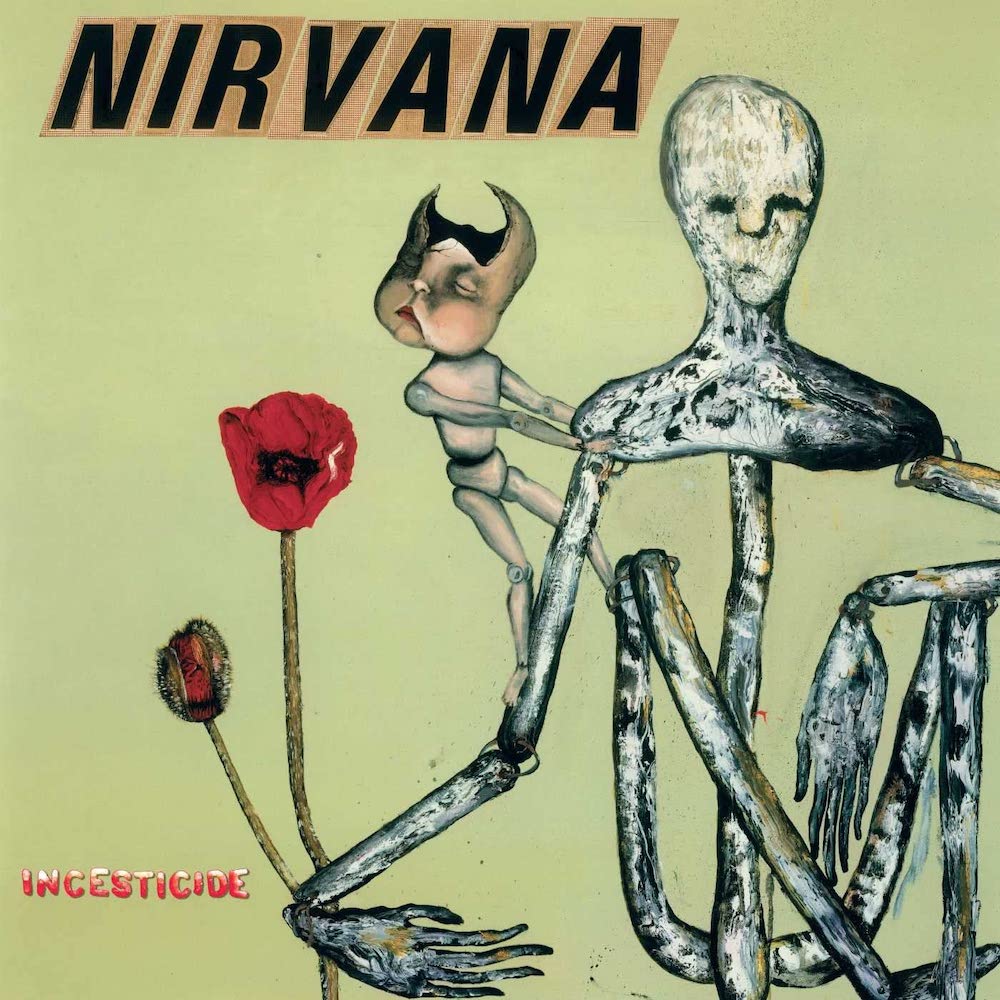
On June 12, 1992, a full month ahead of the release of its third single Lithium, Nirvana's Nevermind album was certified quadruple platinum for four million sales in the US alone. Two months earlier, on April 7, the trio booked a day with Dave Grohl's teenage friend Barrett Jones at the latest incarnation of his Laundry Room studio to record a new Kurt Cobain original, Oh, The Guilt earmarked for a 1993 split single with The Jesus Lizard on Touch and Go Records, a cover of Return Of The Rat for a tribute album to Portland garage-punks Wipers, and a new full-band composition Curmudgeon, destined for the B-side of the Lithium single. They also jammed on / fooled around with rudimentary versions of two works-in-progress (Very Ape, and Frances Farmer Will Have Her Revenge on Seattle) which Cobain considered contenders for the follow-up to Nevermind.
That album, however, lay some way over the horizon, which left the group's paymasters at DGC rather scrambling around for new 'product' that they could bring to market while Cobain's band were still the hottest property in the industry. As luck would have it, Sub Pop still had some unreleased Nirvana material in their vaults, and a deal was struck whereby the Geffen subsidiary paid the Seattle indie label a 'six-figure sum' for the right to give these odds and sods an official global release. The result, on record shop shelves just in time for Christmas - ker-ching! - was Incesticide, a 15-track compilation of B-sides, demos, outtakes, covers, and BBC Radio 1 session tracks, plus both sides of the trio's standalone 1990 Sub Pop single Sliver.
In terms of quality, understandably, Incesticide is a mixed bag. The brilliant Sliver and its B-side Dive, first recorded during Nirvana's only studio session with guitarist Jason Everman, are perfect illustrations of the leap in confidence in Cobain's songwriting between Bleach and Nevermind, Vaselines cover Son Of A Gun is a gloriously addictive fuzz-pop thrash, and Aneurysm, a previously unreleased alternate take of the B-side to Smells Like Teen Spirit, is Nirvana at their exuberantly wild and melodic. But the six track run from Beeswax through to Big Long Now add nothing to the Nirvana legend, other than to show young musicians that every band starts out sounding shit.
In Utero (DGC, 1993)
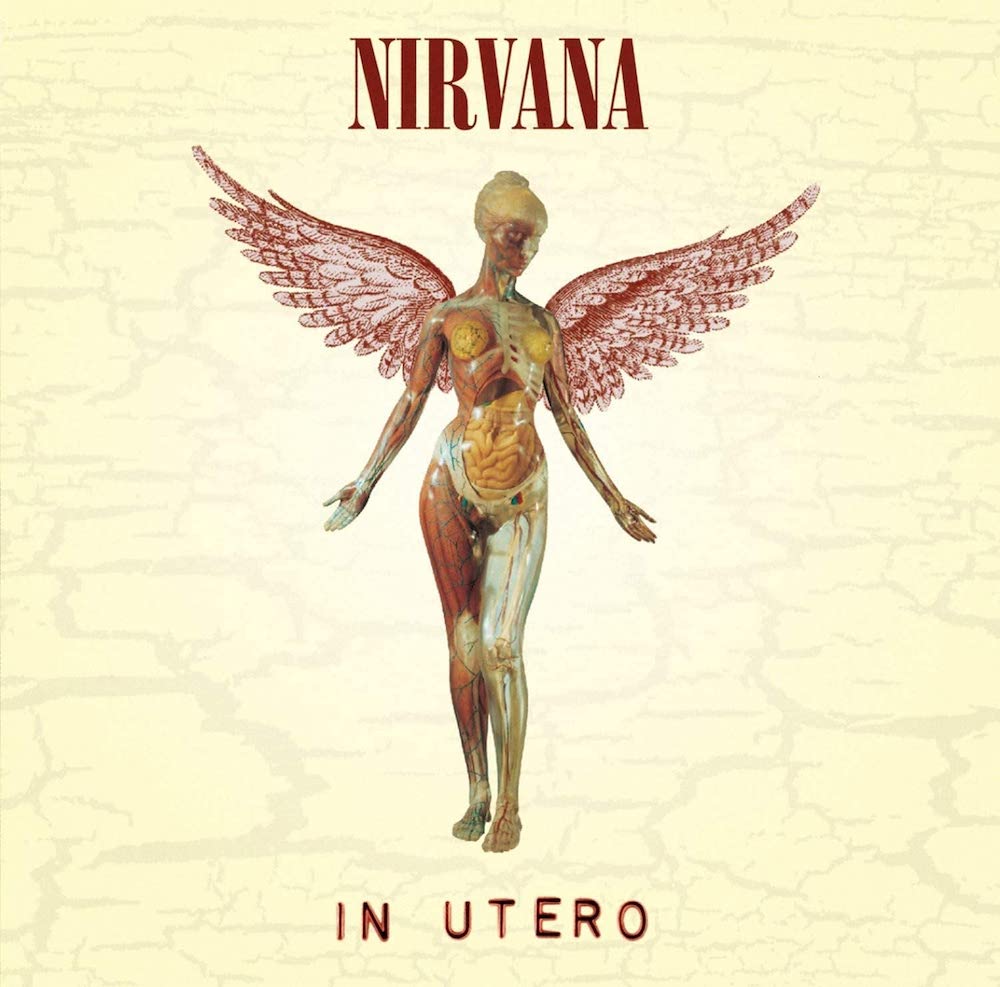
A conflicted, complicated man, Kurt Cobain was never quite the rebellious iconoclast that he desired to be - his scorched earth punk rock manifestos being constantly held in check by his commercial instincts - and his internal internecine tensions were never more harshly illuminated than on In Utero. The weighting of the album - balancing five hissy-fit tantrums against seven of Cobain's most melodic, beautifully crafted compositions - was entirely calculated, designed to demonstrate the artist's abhorrence of his newly gilded status while simultaneously adhering to the templates by which this success was attained.
None of which should detract from the brilliance of the work itself. Paired with the incorruptible Steve Albini, for the first time since the release of Nevermind, at Pachyderm Studios, Minnesota in February 1993 Nirvana had the freedom to be just another working rock band. Thus freed from expectations, the trio responded by delivering their purest ever performances. The result was an uneven yet utterly compelling album, by turns horrifying, hilarious, pitiful, venomous and harrowing.
Thirty years on, the hardcore petulance of Tourette's and Radio Friendly Unit Shifter sound almost endearing, while the indie-rock sarcasm of Very Ape serves to remind that some of the very best rock 'n' roll is gleefully adolescent. Dumb rivals Lou Reed's Perfect Day as the prettiest song ever written about heroin addiction, while Scentless Apprentice, anchored around a Dave Grohl guitar riff that Cobain dismissively described as "bone-headed", is proof that even when utilising trademark songwriting formulas, Nirvana made most of their peers sound pedestrian and half-hearted. But it's Heart-Shaped Box and All Apologies which shine brightest, the former Cobain's most perverse yet tender exploration of obsessive love, couching his adoration of Courtney in terms more traditionally associated with entrapment and addiction, the latter an achingly poignant shrug of resignation from a 26-year-old man instinctively sensing that his happiest days are behind him, even as he delivered his finest work.
Speaking to Michael Azerrad for Nirvana biography Come As You Are, Cobain suggested that Nirvana would "turn into the Butthole Surfers basically" on their next studio album, saying that he was "tired" of traditional songwriting formats, which were now "real boring". But there would be no next Nirvana studio album.
"Obviously In Utero was a direct response to the success and sound of Nevermind," Dave Grohl told this writer as In Utero turned 20 in 2013. "We had just pushed ourselves in the other direction, like ‘Oh really, that’s what you like? Well here’s what we're going to fucking do now!’ But it’s a hard album for me to listen to from front to back. Because it's so real and because it's such an accurate representation of the band at the time, it brings back other memories. It kinda makes my skin crawl."
MTV Unplugged in New York (DGC, 1994)
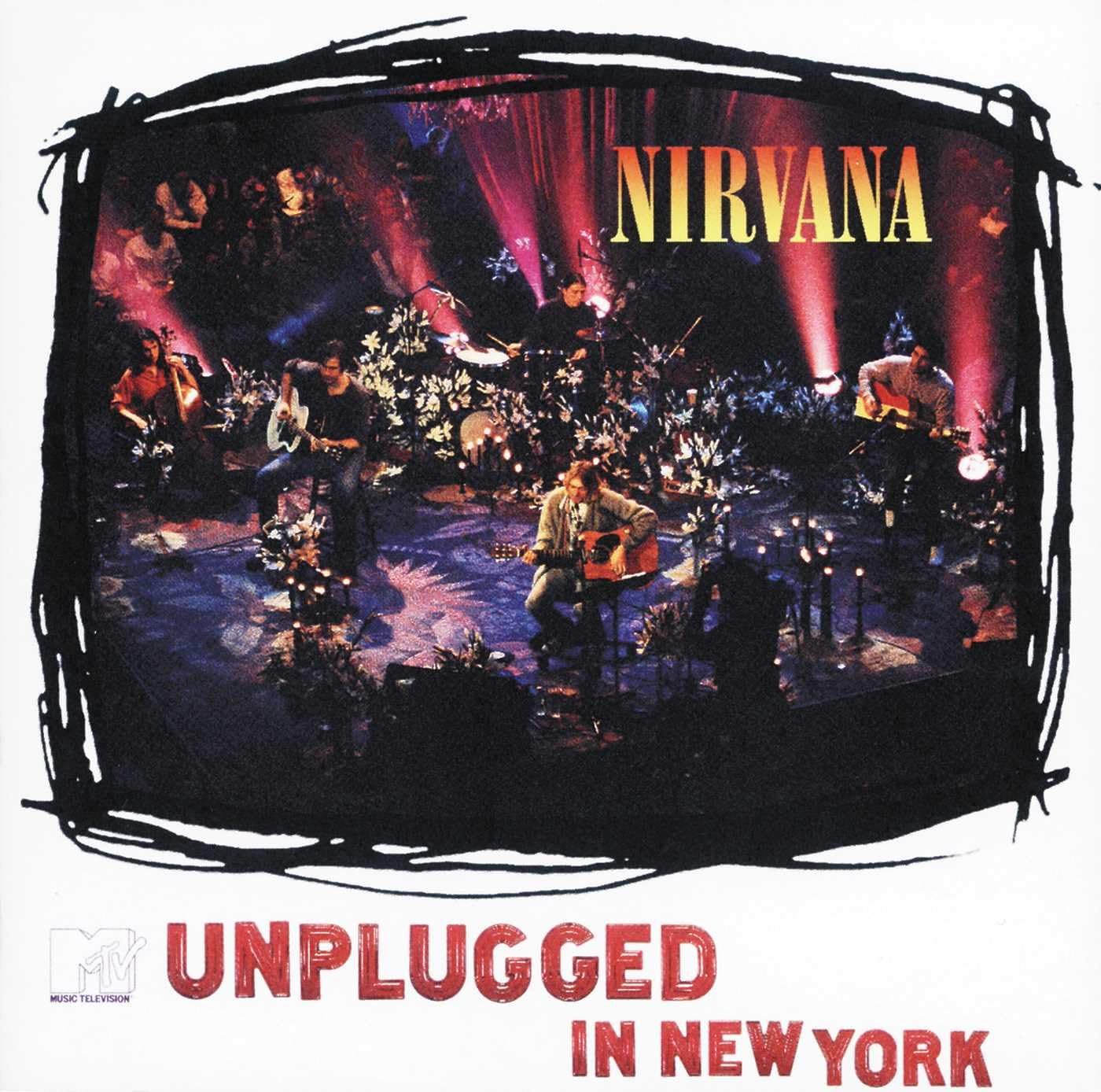
Ahead of the taping of Nirvana's MTV Unplugged performance on November 18, 1993, Kurt Cobain discussed the proposed set design with the show's producer Alex Coletti, requesting that the stage be decorated with black candles and stargazer lilies. Asked what kind of vibe he hoped to evoke, Nirvana's frontman replied, "You know, like a funeral."
When the band submitted their set-list for the performance, not open to negotiation, MTV executives got nervous. There was no place on the list for Nirvana's best-known song - "There was no way we were going to try to pull off Smells Like Teen Spirit with fucking acoustic guitars" Dave Grohl later stressed - and a total of six cover versions promised, including David Bowie's The Man Who Sold The World, Jesus Wants Me For A Sunbeam by The Vaselines (retitled Jesus Doesn't Want Me For A Sunbeam), Leadbelly's Where Did You Sleep Last Night and no fewer than three songs by veteran SST act Meat Puppets.
In an attempt to settle their very obvious nerves, Nirvana eased into the performance by playing the oldest original song on their setlist: About A Girl. "This is from our first record," said Cobain in his introduction. "Most people don’t own it."
The 53 minutes which follow are simply spell-binding. Playing as a five piece, with Pat Smear on guitar and cellist Lori Goldston adding beautifully dark tonal colouring, Nirvana had never sounded more desolate or despairing, with Cobain singing of death, deliverance, betrayal and rejection. Though this was the band at their quietest - Cobain actually considered dropping Dave Grohl from the recording over fears that the powerful drummer might not be able to tone down his playing sufficiently - it was a punk rock performance in the same way that Bruce Springsteen's dark masterpiece Nebraska is a punk rock record. Cobain's version of Where Did You Sleep Last Night might just be the most haunting, chilling song ever recorded.
For those watching, Nirvana's performance seemed to open up a whole new world of possibilities for the band, but by the time the recording received its commercial release, their story was already over.
"I remember watching Kurt coming through and thinking, God, this music is nuclear," U2 frontman Bono told Newsweek some eight years after Cobain's passing. "Nirvana made everything else look silly."

A music writer since 1993, formerly Editor of Kerrang! and Planet Rock magazine (RIP), Paul Brannigan is a Contributing Editor to Louder. Having previously written books on Lemmy, Dave Grohl (the Sunday Times best-seller This Is A Call) and Metallica (Birth School Metallica Death, co-authored with Ian Winwood), his Eddie Van Halen biography (Eruption in the UK, Unchained in the US) emerged in 2021. He has written for Rolling Stone, Mojo and Q, hung out with Fugazi at Dischord House, flown on Ozzy Osbourne's private jet, played Angus Young's Gibson SG, and interviewed everyone from Aerosmith and Beastie Boys to Young Gods and ZZ Top. Born in the North of Ireland, Brannigan lives in North London and supports The Arsenal.
